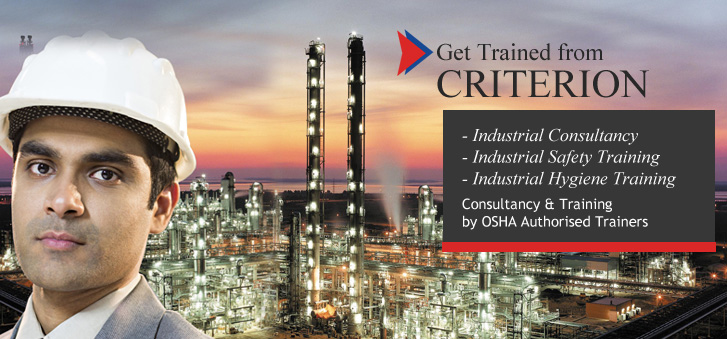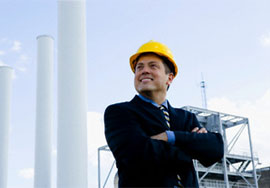| |
|
Professional Training in Occupational Safety and Health in Hospitality Industry (6 Months Regular Program)
The most desired specialization for Hotel, Tourism, Airline, Hospital and Other Services Industries
The hospitality industry includes hotels, travel companies, resorts, transportation and restaurants, with some offering overlapping amenities. Two major safety controls in hospitality are fire prevention and emergency preparedness. However, many other hazards including accidents, electrical safety, slips, trips and falls hazards, hand and power tools safety, machinery hazards, ladder safety, lifting and carrying difficulties, back problems, on-site driving dangers, hygiene, office safety measures and shift work adjustments also exist. In addition, many services including food preparation, housekeeping, and security are offered for customer convenience and assigned officers should be conversant with the many dangers that can occur while performing these functions.
CIOSHI offers a simple way to educate these aspiring candidates for acquiring competency which in many instances is constantly changing. Finally, as employment opportunities in this sector attract applicants with varying language proficiencies, many of these are available only in English.
Syllabus 10 Modules
Module - 1
Introduction to the study of occupational safety, health and environment in service industry
Introduction to HSE, The problem of accidents during work, how accidents are caused, how accidents are prevented, accidents and accident prevention today, exchange of experience,
Module - 2
Psychological and psychological aspects of accident prevention.
Psychological and physiological aspects of accident prevention, attitudes towards safety, causes of accidents, environment and frequency of accident, fatigue and boredom, experience and inexperience, accident proneness, investigation, statistics, analysis and classification of accidents.
Module - 3
Housekeeping
Good housekeeping - the foundation of an effective accident prevention program, a neat, clean, and orderly workplace is a safer work place, recognizing the importance of good housekeeping, what it really involves, understand housekeeping responsibilities, practicing 5 S, develop good housekeeping habits; identify and eliminate housekeeping hazards,and help prevent workplace fires and accidents.
Module 4
Safety in the use of electricity
Electrical injuries, electrical shock, severity of shock, fundamentals of electrical hazards, effect of electrical current on human body, burns, falls, leading causes of electrical accidents, unsafe work practices, unsafe equipment, power tools, hazards of lightening, general precautions, work on live equipment, special precautions, electrical emergencies, protecting yourself, what to do until aid arrives.
Module - 5
Fire protections - Prevention, Controll, Estinguishment
Basic fire safety, costs in lives and property damage, chemistry of fire, adequate exits, fire-safe construction, smoke and heat venting, factors contributing to Industrial fires, electrical equipment fires, smoking, friction, open flames, spontaneous ignition, housekeeping, explosive atmosphere, chemistry of fire, classification of fires, interrupting the reaction, cooling, removing fuel, limiting oxygen, portable fire extinguishers, miscellaneous equipment, water systems, water supply and storage, automatic sprinklers, training, maintenance and inspection, fire prevention activities, fire and emergency drills, communications.
Module - 6
Occupational health hazards
Introduction, ergonomics, occupational environment, man and physical, chemical and biological agents, man and machines, man and man, occupational hazards, means of general health protection of workers, nutrition, communicable diseases control, environmental sanitation, mental health, medical measures, pre-placement examination, periodical medical examination, medical and health care services, supervision of working environment, maintenance and analysis of records, Health education and counseling.
Module - 7
Vehicles and transport in services industries
Operating normal and special purpose vehicles , backing, moving forward, parking transportation of workers, seat belts, passenger seating and seat belts, towing, driver requirements, responsibilities, motor vehicle regulations, vehicle conditions, in case of motor vehicle accidents, in case of emergencies.
Module 8
Emergency organization, planning and preparedness
Objectives, definition, preliminary considerations, basic plan, immediate action to be taken, key personnel, work incident controller, teams and team leaders, advisors to site main controller, poor communication, training, mock drill,
Module - 9
Hazard analysis and critical control points .
HACCP :
The tool to maintain quality product and safe guard product from contamination, a system which identifies, evaluates and controls hazards from physical, chemical or biological agent which has potential to cause adverse health effect, Seven principles, conducting hazard analysis, identifying critical control points, establishing critical limits for each critical control point, monitoring requirements, corrective actions, record keeping procedures, procedures for verifying HACCP
Module - 10
Compliance
Compliance with known practices, management's responsibility for ensuring safety and health, enforcing rules fairly and uniformly, systems for ensuring compliance with the rules and maintain a safe environment, communicating provisions and evaluating the safe performance, recognizing safe and healthful practices, providing training to staff and workers whose safety performance is deficient, dealing with failures in safe and healthful practices compliance.
For whom:
Higher secondary, Diploma/PG Diploma in Hotel Management, Graduates in any disciplines, Diploma or Degree holders in Engineering. Pand Employees from other trades desires to moving to safety profession.
Discipline:
Safety professionals are the ones to set examples for others; even in matters like adopting correct postures any where. Developing personality – behavior modification to suit the safety profession is the very purpose of our training/learning. We reiterate the importance of discipline on and off the institute from day one here.
Test Assessment and Examination
- Monthly tests on every module.
- Mid term examination.
- Frequent Quizzes and Tests for Internal Assessment for 100 Marks
- Project work for 100 Marks
- Practical tests for 100 Marks
- Final examinations in Five Papers for 100 Marks Each.
- Requires a minimum of 50% for a Pass and above 60 % for First Class.
|
|




